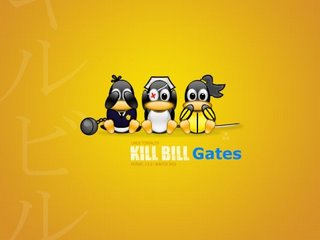 Criticism of Microsoft is fashionable. It is also easy, fun and often justified -- as in the case of its dealings toward the OpenDocument Format or its blind hostility to open source software.
Criticism of Microsoft is fashionable. It is also easy, fun and often justified -- as in the case of its dealings toward the OpenDocument Format or its blind hostility to open source software. Everyone loves to hate Darth Vadar, the Borg, Hannibal Lecter, Saruman, lawyers, Starbucks, Bill Gates, or even better Steve Ballmer.
But, the enemy is not any one company or person. Walls are the enemy. Walls that suppport silos. Walls that prevent the sharing of information, documents, ideas and innovations. The genius of open source software is not the code but the collaboration -- its removal of walls.
Open ICT ecosystems are not fortresses, and should not be managed with the same fortress mentality that sadly characterizes many organizations and companies. This applies equally to Microsoft, Red Hat, open source communities, CIOs and governments.
Open technologies-- like open standards and open source--are a fact of life. Open approaches to innovation and business are increasingly tranforming economies and enterprises.
And yet, sometimes dramatic steps are needed to re-shape an ICT ecosystem that remains under competitive, for example when it comes to technology choices ...
... which brings us to the Phillipines.
A bill called the Free/Open Source (FOSS) Software Act of 2006 will be presented on Tuesday, September 12th requiring government agencies to use open standards and open source software. The bill is serious about preventing vendor lock-in:
"Under no circumstances are ICT goods and services to be acquired by the State restricted for use in a single vendor environment only. All prospective ICT investments of the government shall comply with open standards, and existing ICT systems will be reviewed for open standards compatibility."
The legislation will allow government use of proprietary software only when no open standards-based alternatives are available, or when a proprietary system is already widely in use and no open standards-based technology exists that interoperates with it. Oddly enough, that last exception may create a disincentive for major proprietary vendors NOT to interoperate if their products are already widely used within the Phillipine public sector.
Laws requiring open source have been a cause of controversy in recent years. In the Open ePolicy Group's Roadmap for Open ICT Ecosytems, we recommended that people focus less on the software development model and more on actions that increase choice and competition.
Why? Because open ICT ecosystems are neither 100% open or closed; they are a mixed environment. With open standards as a foundation, specific software procurement should be driven by the business case and clear public policy needs.
From that perspective, much of the draft Phillipine legislation seems designed to build a critical mass of open ICT in its ecosystem. It will promote research in open source software, incorporate open source into the computer science curriculum in schools, and provide legal recognition for open source licenses. These are all important ways to even the playing field for open source without mandating its procurement.






